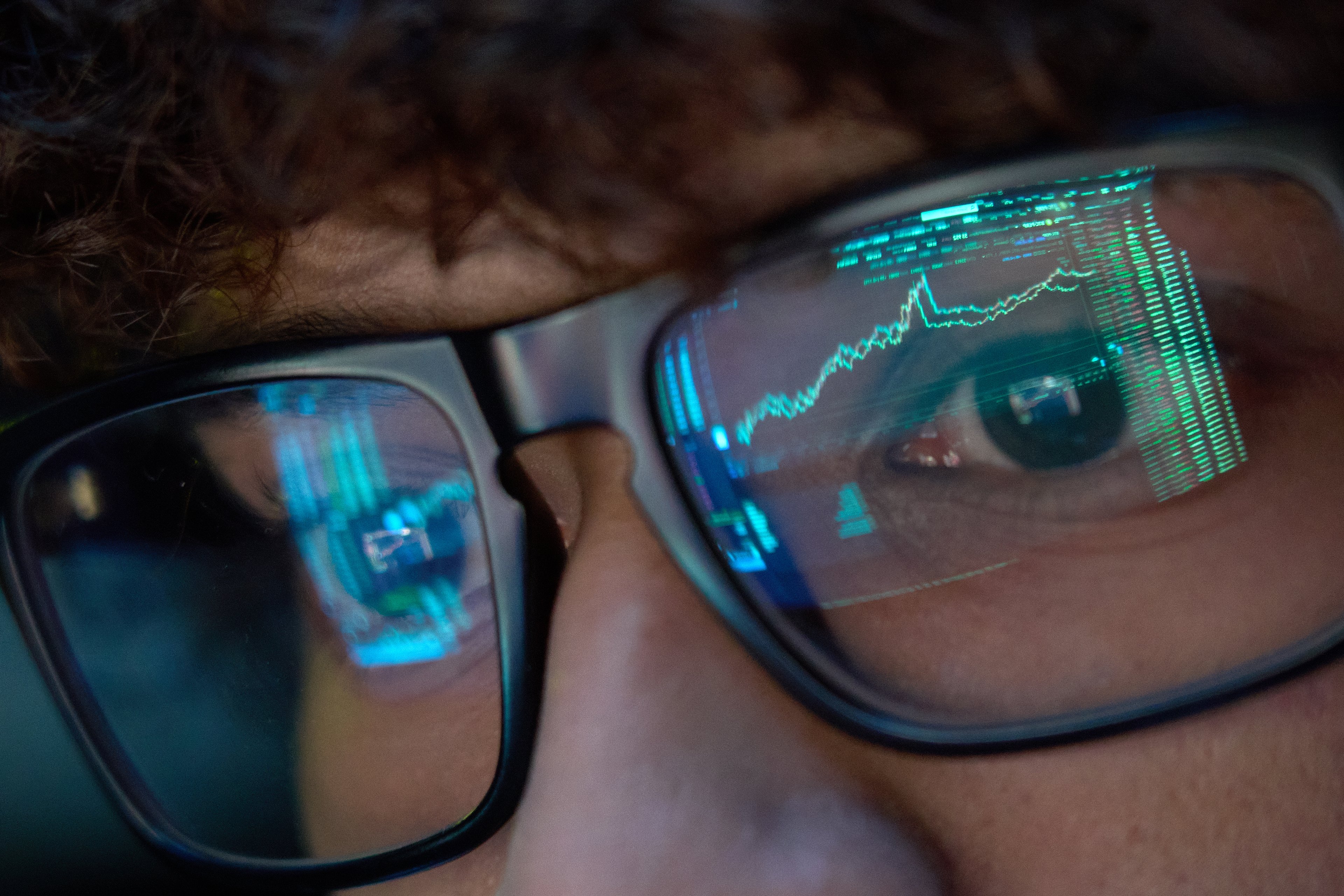Data is the fuel that keeps Wall Street's engine running, and investors are rarely ever hurting for information to digest. Between earnings season -- the six-week period each quarter where most S&P 500 components reveal their operating results -- and near-daily economic data releases, something of importance can easily fly under the radar.
For instance, the quarterly filing of Form 13Fs is, arguably, just as important as earnings releases and economic data.
A 13F, which is required to be filed by institutional investors with at least $100 million in assets under management (AUM), tells investors which stocks Wall Street's brightest fund managers purchased and sold in the latest quarter. This can be particularly helpful in spotting which companies and trends are piquing the interest of successful asset managers.

Image source: Getty Images.
Although Warren Buffett is the most-followed of all money managers on Wall Street, he's far from the only billionaire who's delivered outsize returns. Coatue Management's Philippe Laffont, who's overseeing $35.9 billion in AUM, is another billionaire fund manager who rightly garners attention.
Laffont is a big fan of putting his fund's capital to work in high-growth stocks and game-changing innovations with sky-high addressable markets. Based on Coatue Management's last two 13Fs (covering trading activity from Jan. 1 through June 30), Laffont was a seller of Warren Buffett favorite Domino's Pizza (DPZ 2.15%), and a big-time buyer of a hydrogen stock that surged more than 60% last week and 156% over the trailing month (as of Oct. 3).
Billionaire Philippe Laffont sent shares of Domino's Pizza packing
Although Domino's Pizza stock has been crushing the benchmark S&P 500 since the late 2000s, it really gained notoriety when Berkshire Hathaway's Warren Buffett began buying shares. Domino's is one of two stocks the soon-to-be-retiring Oracle of Omaha has purchased for four consecutive quarters.
However, Coatue Management's billionaire boss headed a different direction and quickly showed all 322,621 shares of Domino's Pizza that were held at the end of 2024 to the door during the first quarter of the year. Shares of Domino's had been held by Laffont's fund since the fourth quarter of 2023.
The most logical of all reasons why Laffont sent shares of Domino's to the chopping block is simple profit-taking. Though the average position for Coatue is held for almost two years and nine months, its billionaire boss tends to be a fairly active trader who regularly adds to/reduces existing holdings. When the opportunity to lock in a gain presents itself, Laffont hasn't historically shied away.

NASDAQ: DPZ
Key Data Points
But there may be more behind this story than just Domino's stock increasing in value from when Laffont first added it to his fund's portfolio.
For example, there may be concerns, at least domestically, about the impacts of inflation on Domino's bottom line. Though the price point of fast-casual food works in the company's favor and should, in theory, drive more business as consumers look to reduce their food costs, the rising cost of various ingredients could leave Domino's Pizza in a tough bind. It may be forced to either eat some of these higher costs, or raise prices and potentially lose some of its customers to competitors.
The other potential worry with Domino's Pizza stock is its valuation.
On one end of the spectrum, it's delivered 31 consecutive years of international same-store sales increases and demonstrated an uncanny ability to implement and exceed five-year strategic growth plans. In other words, there are reasons investors have been willing to pay a premium to own Domino's stock.
On the other hand, this is the second-priciest stock market in history, when back-tested more than 150 years, and there's simply no margin for error with a company whose forward price-to-earnings (P/E) ratio has vacillated between 22 and 27 for much of the last year. While this isn't egregiously pricey, it's a bit of a stretch for 4% to 6% annual sales growth.

Image source: Getty Images.
Coatue's billionaire boss took a sizable position in Wall Street's hottest hydrogen stock
Since 2025 began, Philippe Laffont has overseen the addition of 32 new stocks to Coatue Management's portfolio. Some of these are high-profile artificial intelligence companies, like Oracle, Arm Holdings, and CoreWeave. But the majority of these additions have been small- and mid-cap stocks that are well off the radar for most investors (and even other billionaire money managers).
Perhaps the biggest eyebrow-raiser was Coatue's first-quarter 13F, which showed he'd purchased 4,098,713 shares of hydrogen fuel-cell stock Plug Power (PLUG +4.42%). Shares of Plug rallied more than 60% last week, and they've surged by more than 155% over the trailing month. If (big if) Coatue's billionaire chief hung onto this position, he's likely sitting on a sizable unrealized gain.
For years, Plug Power's bread-and-butter had been deploying hydrogen fuel-cell-driven forklifts. These forklifts are being used by Amazon in its warehouses as part of the e-commerce giants' pledge to reduce its carbon footprint.
But Plug Power's ambitions go well beyond forklifts. It aims to be a green hydrogen ecosystem, with its electrolyzer plants and hydrogen infrastructure powering everything from hydrogen vehicles to forklifts worldwide. Hydrogen is a clean energy source, with Plug seeing plenty of demand for its electrolyzer technology.

NASDAQ: PLUG
Key Data Points
The surge in Plug Power stock last week had everything to do with a price target hike from $3/share to $7/share by H.C. Wainwright. Analyst Amit Dayal upped his revenue estimate for Plug to $11 billion by 2035 from a prior forecast of $7 billion. Dayal believes higher electricity prices are a catalyst for Plug's electrolyzer technology that can lead to quicker adoption.
However, Dayal also once had a $78 price target on Plug Power and witnessed the stock plunge below $1 per share. Dayal's previous swing and miss on Plug has to do with the company failing to demonstrate that its operating model is viable.
While a green hydrogen ecosystem sounds fantastic on paper, the costs to get everything in place have been burdensome on Plug Power. The company isn't particularly close to being profitable and it's been burning through an extraordinary amount of cash as it gets needed infrastructure in place. Since its inception, Plug has lost north of $7 billion.
With the business burning cash, Plug Power has been something of a dilution machine. It's issued stock to raise capital, which has a dilutive effect on existing shareholders. With no clear end in sight to this ongoing cash burn, don't be surprised if Philippe Laffont locks in his fund's gains sooner than later.











